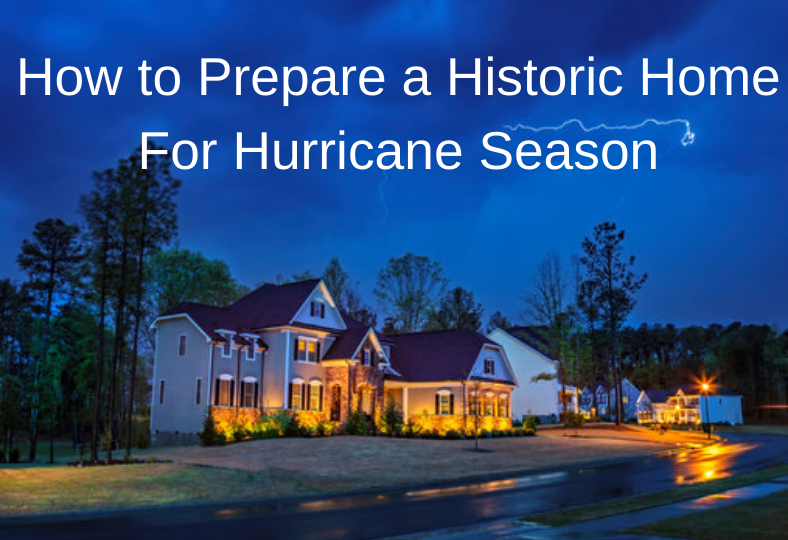Many of us dream of owning a historic home. Historic homes come with many benefits, but also some risks. One of the most common risks associated with living in a historic home is how vulnerable it can be to natural disasters such as hurricanes. In order to prepare your historic house for hurricane season, there are five tips that you should follow.
Inspect & Repair Your Gutters
Your roof and gutters are the most important things to inspect when preparing for hurricanes. Before hurricanes hit, make sure you clean out your gutter system; this will help them drain properly if there is a lot of rain. If clogged, water can damage your roofing shingles or build up around nails on your roof’s edge. When inspecting the rest of your gutter system, look for any worn down pieces that could be more dangerous during hurricane season. You may also want to apply some metal flashing on the bottom portion of the gutter system to protect it from hurricane damage.
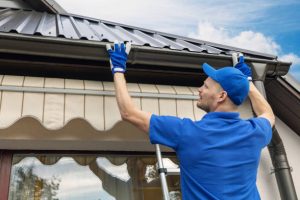
Clean Your Roof Before the Hurricane Hits
Before hurricane season begins, it’s smart to have your historic house’s roof cleaned by professionals. Simply rinsing your roof with a hose can get rid of debris from trees or other things, but it won’t deep clean the most vulnerable areas. A good cleaning is key to protecting your roof during hurricanes because hurricanes can easily damage your historic house’s roof by creating pockmarks that are perfect places for leaks.
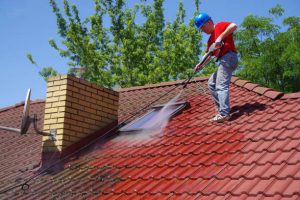
Check Your Roof For Any Missing Shingles that Need Replacements
Your roof is more important than any other component of your home. It protects you from the elements. Everything else can be damaged quickly if the roof is removed. It is crucial to choose the right roofing material for your home. You should check for any loose or missing shingles on the edge of your historic home’s roof before hurricanes come around. If they are weak, hurricanes will push them off and create more damage if they blow away in high winds.
It is not worth spending a lot of money on asphalt shingles that are the cheapest. You should upgrade to more expensive, wind-rated roofing shingles. The price of shingles is far less than the labor required to install them. Major manufacturers offer asphalt shingles with wind ratings of 135 mph or higher. Some even make shingles that can withstand 150 mph winds. It is best to undergo a home inspection before making a choice on what material to use for your new roof.
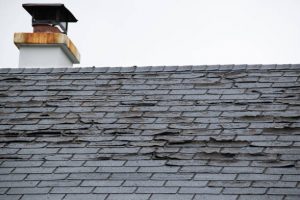
Remove Any Dead Wood Near Your Home
Since hurricanes can knock trees down, you want to remove dead wood near your historic home before hurricanes come around. The dead wood could blow into your house if a hurricane blows it towards your house or it might fall on top of the chimney and cause significant damage. You should also keep all bushes away from windows because they can break during hurricanes. This will reduce how much glass has to cover up in order to avoid hurricane damage.

Buy Storm Windows
Storm windows are a better choice than replacing your windows. There are companies that can replace traditional wood storm windows with laminated-impact glass. This will not only make your windows more resistant to flying debris but also make them more efficient. These storm windows can be added to existing windows for double the protection and efficiency.
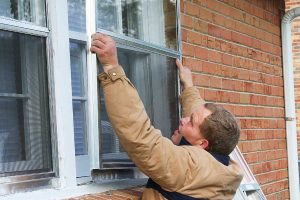
Conclusion
As you can see, hurricanes are sometimes the most devastating natural disasters that you will have to deal with in historic real estate. That makes preparing for hurricanes very important before hurricane season comes around each year! If you’re looking to buy historic real estate, be sure to work with someone knowledgeable about these types of properties. A specialist can help you avoid many of the problems that come with living in historic homes and selling your home before moving into a historic one. They’ll know what questions you should ask, what steps you should take to make your house as safe as possible, and more.
